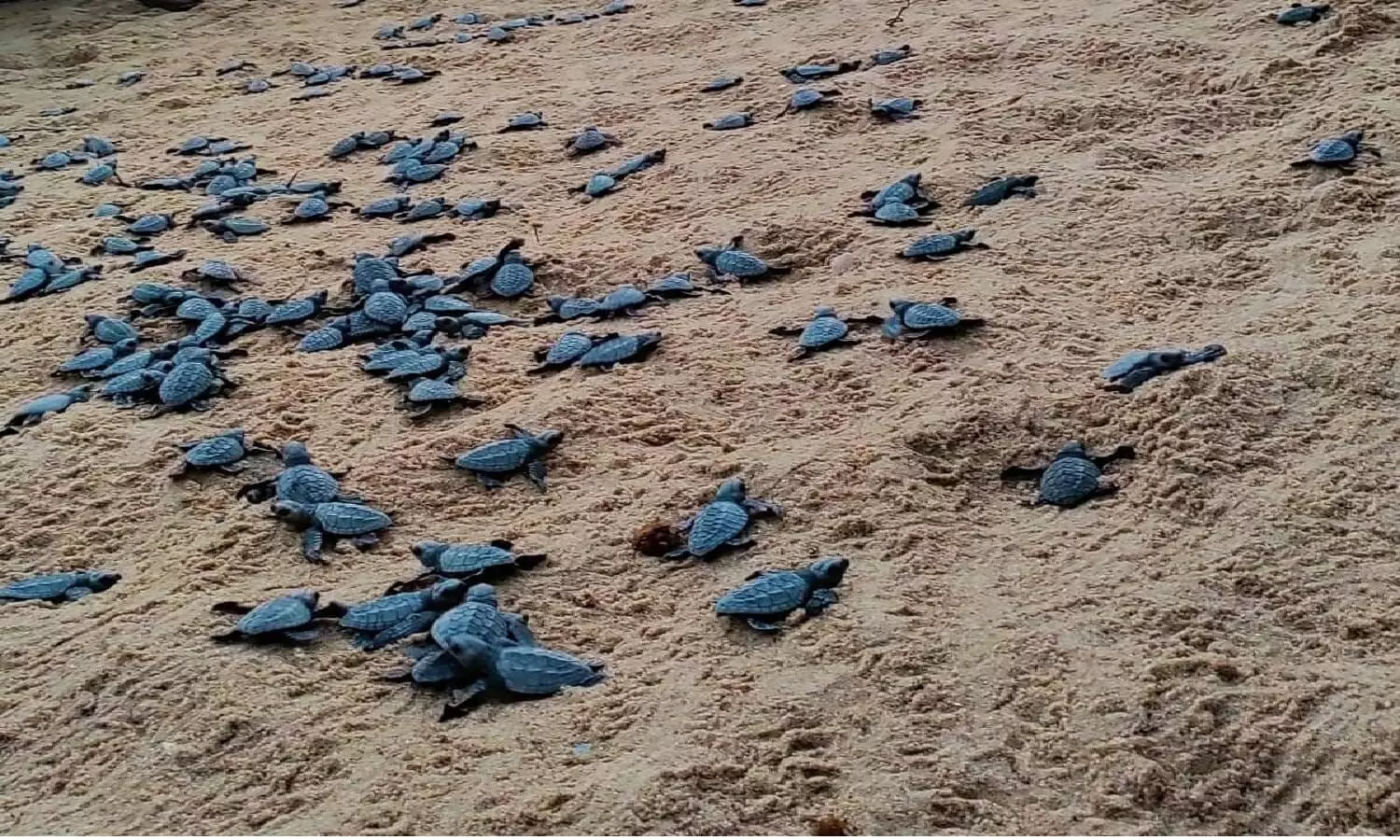Vizag says happy goodbye to Olive Ridley hatchlings, 1,000 of them released into sea
Many say Vizag has an emotional bonding with these little ones that are born in the coastal area and later, head back to home
By Sri Lakshmi Muttevi
Visakhapatnam: It was a happy goodbye for the Olive Ridley Turtle hatchlings as they were released into the sea by the AP forest department. Under the turtle protection and conservation programme, about 1,000 hatchlings were released near Joduglapalem beach on Sunday morning.
The Visakhapatnam coast is home to three turtle species – Olive Ridley, Green Turtle, and hawksbill sea turtle.
Many say Vizag has an emotional bonding with these little ones that are born in the coastal area and later, head back to home. Olive Ridley Turtles were first spotted on the Visakhapatnam Coastline in the early 1980s. They have a connection with the shore they are born in. The geographical location is engraved in their minds. So when these hatchlings come of age, they come back to the same location to lay the eggs. And the cycle goes on.
According to Visakhapatnam district forest officer Anant Shankar, there are five base camps at RK Beach, Jodugullapalem, Chepalauppada, Mutyalammapalem, and Pedanagayyapalem for conserving the eggs of Olive Ridleys. Each camp is guarded by five fishermen who keep a watch on the eggs laid by the turtles. They conserve them for the 45-day incubation period. "Every season, we take up conservation activity from January to May. This year, so far we got 50,000 eggs," said Mr. Shankar.
According to the fishermen, the nesting period of the Turtles is generally from November to March with the peak being from January to February-end. The turtle's footprints are visible and that's how they know then that there are eggs. Each turtle lays around 100-150 eggs. Out of these, approximately 10 eggs do not mature properly.
Threat from humans
While many people reached the spot to witness the little ones heading back home, human handling of the babies while being released caused worry among the officials. It is said that the hatchlings should not be held hard because it could break the white dots on their bellies which holds three days' worth of food. While being released into the sea, many people caught hold of the Olive Ridley hatchlings to take photos. Teams of the forest department had to keep a strict vigil on the people and warn those who were trying to catch them.